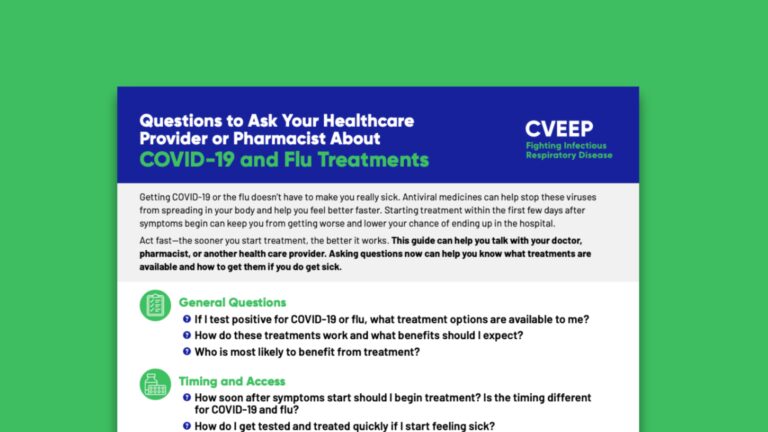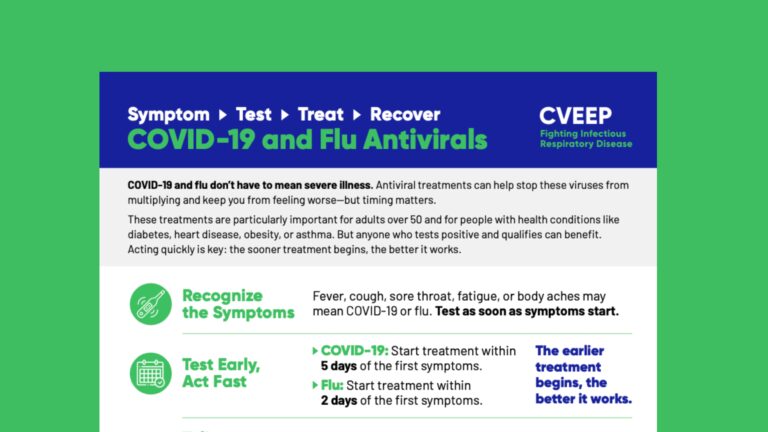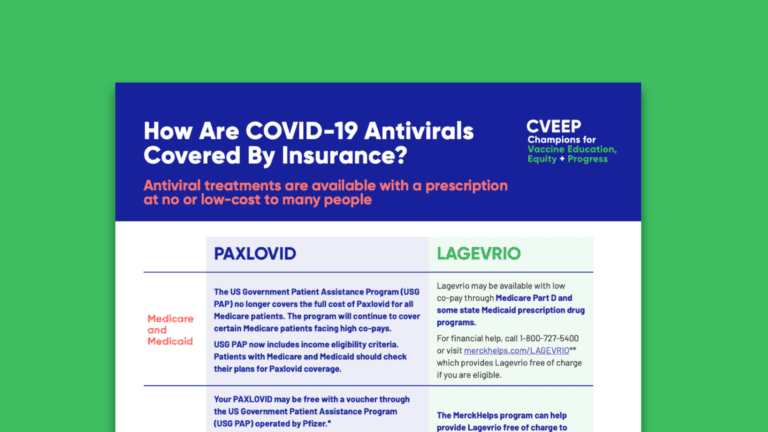Treatments: Behind the Science
Need vaccine information?
Check out the resources below.
Visit
Visit
While treatments are not a substitute, nor a replacement, for vaccines, the Food and Drug Administration (FDA) has approved them for people at high risk of hospitalization or death from COVID-19 or influenza (flu).
Of course, the individual choice to use any medicine should be made with your health care provider who knows your health history, other medications you may be taking, allergies, etc.
How do antivirals work?
Antivirals are prescription medicines that work by fighting against viruses in your body. They target specific stages of the virus to stop it from spreading within the body. They can prevent the virus from entering host cells, interfere with replication, or block the assembly and release of new viral particles. By disrupting these stages, antivirals can alleviate symptoms and decrease the risk of severe outcomes.
How effective are COVID-19 and flu antivirals?
Antiviral treatment provides the greatest benefit when started soon after illness begins — within 5 days after symptoms appear for COVID-19, and within 2 days after symptoms appear for flu. Clinical trials have shown oral antivirals reduce the risk of hospitalization 60% for flu, and the risk of hospitalization or death by as much as 89% for COVID-19.


